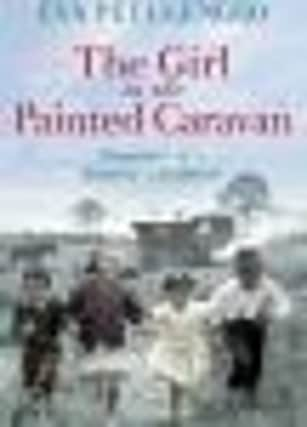Book review: The Girl in the Painted Caravan by Eva Petulengro


Her childhood seemed to her to be idyllic as she travelled the countryside with her family in their painted caravan and spent evenings by the fire listening to songs and stories.
While the men hunted for food and tended horses to make a living, the young girls joined the women as they read palms.
Advertisement
Hide AdAdvertisement
Hide AdBut the post-war years changed everything for the Romany people and Eva’s comfortable world was turned upside down.
Petulengro’s evocative and entertaining memoir recalls a way of life that was an unending adventure for a child...the patter of rain on a caravan roof, the tang of wood smoke mingled with the aroma of cooking and the fun of waking up in a new town.
By the time she was 21, her family had moved into a home of bricks and mortar, forced off the roads by Tarmac, cars and a new kind of ‘traveller’ whose chaotic and often dishonest lifestyle besmirched the heritage of the real Romanies.
Settled in Brighton, Eva’s mother became the well-known palmist and clairvoyant in a booth on the resort’s pier and Eva herself read the palms of celebrities like the Beatles and wrote a horoscope column for dozens of newspapers.
Advertisement
Hide AdAdvertisement
Hide AdIt was all a far cry from the heyday of Eva’s grandfather ‘Naughty’ Petulengro, so called because of the mischievous twinkle in his eye, whose family had travelled the lanes of Norfolk and Lincolnshire for centuries.
It was a way of life rooted in traditions that had given Romanies a strong sense of pride in themselves and their unique culture.
Naughty and his wife Alice Eva had nine children who spilled out into rod tents known as ‘benders’ when the wagons made their stopovers, often in pub yards or on farmers’ land where Romany gypsies were welcomed because of their skills to treat both horses and people.
The womenfolk read palms, a special gift that Eva believes sprang from a lack of traditional schooling which left room in their brains for natural instincts to develop.
Advertisement
Hide AdAdvertisement
Hide AdAt the turn of the 20th century it was almost unheard of for a Romany to marry a non-Romany, known as a ‘gorger’. Marriage was for life and usually began with an elopement.
The seeds of change were sown for Naughty and Alice in 1927 when their old friend Billy Butlin from a fairground travelling family set up his own amusement park in Skegness and invited Alice to open a palmistry booth there for six months of the year.
For the first time the Petulengros (Romany for the surname ‘Smith’) formed roots and before long their children were mixing with non-Romanies.
The Depression of the 1930s brought further changes; ‘gorgers’, many of whom degenerated into thieves and con artists, took to the road and soon ‘No Gypsies’ signs began to appear in areas where the Romanies had previously been welcomed.
Advertisement
Hide AdAdvertisement
Hide AdEva’s mother Laura married a non-Romany who joined them on their travels but his jealousy, restlessness and mistreatment of his wife and children cast a shadow over an otherwise happy childhood.
Eva too married a non-Romany but, unlike her mother, it brought her only happiness and success.
The Girl in the Painted Caravan evokes another time and another place, a romantic and rural idyll that can never be recaptured. It is also an honest account of the trials and tribulations that beset our lives, however perfect we believe them to be in our youthful innocence.
(Pan, paperback, £6.99)